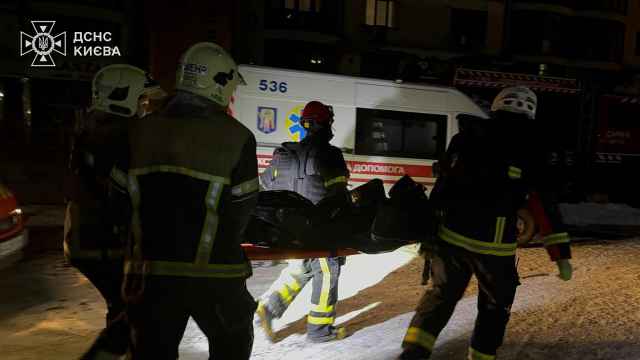The Central Bank raised interest rates on its deposit operations Friday to contain surging inflation, its first step away from the loose policy implemented after the financial crisis hammered the economy.
The bank lifted its deposit rates by 25 basis points but left the cost of lending operations — including the benchmark refinancing rate — unchanged, saying a narrower corridor between the cost of various instruments would increase the effectiveness of its interest rate policy.
Analysts said further tightening would likely follow in early 2011, given the Central Bank's increasing focus on price pressures and relative optimism on the strength of the economy.
"Inflation risks, as determined by monetary conditions, remain moderate but deserve greater attention from the authorities," the Central Bank said in a statement, adding that economic recovery remains on track. "The change … will not lead to a significant increase in the cost of funds for end borrowers."
The overnight deposit rate rose to 2.75 percent as of Monday. The refinancing rate remains at a record low of 7.75 percent.
"Increasing the deposit rates will lead to tighter conditions on the money market. Banks have nowhere to put their money and the only risk-free investment is Central Bank deposits," said Maxim Oreshkin at Credit Agricole.
"This was the first step on the fairly long path of tightening monetary policy."
Most analysts had expected no change Friday, but eight of out of the 19 analysts polled last week had forecast a hike in the overnight deposit rate. Some had also expected an increase in the refi rate.
"I think they will start to raise other rates from the end of January. The increases will be gradual, at 25 basis points a month, with a total potential of 75 to 100 bps by the end of the first half," said Maria Pomelnikova at Trust, who sees inflation reaching 9 percent by mid-2011.
The bank last hiked rates in late 2008 in a bid to support the ruble and deter capital flight, but subsequently cut them again as the economy contracted sharply.
The ruble and money market showed little reaction to the actual decision, having surged this month in anticipation.
Longer term, if more rate hikes follow, the ruble could continue to appreciate as it recovers its status of a high-yielding currency, analysts said.
Weekly inflation has accelerated to 0.3 percent, bringing the year-to-date figure to 8.4 percent and leaving real interest rates deep in negative territory.
Ahead of the decision, Central Bank governor Sergei Ignatyev told lawmakers that he was "worried about inflation," although its spike was mostly caused by a rise in food prices after the worst drought in more than half a century.
Policymakers are concerned that second-round effects, such as rising meat prices, will push inflation higher toward the middle of next year. That may lead the Central Bank to miss its end-2011 inflation target of 6 to 7 percent.
By raising only deposit rates, which serve as the de facto policy rate at a time of abundant liquidity, the Central Bank is seeking to shift toward a policy framework where interest rates will supplant the exchange rate as the primary focus.
The ultimate goal is to introduce a conventional inflation targeting regime, but with policy rates deeply negative in real terms that remains a considerable way off.
With the corridor still some 500 basis points wide, the Central Bank could continue to limit its tightening to the deposit rates given that high liquidity means that banks are less interested in borrowing money from the Central Bank.
A Message from The Moscow Times:
Dear readers,
We are facing unprecedented challenges. Russia's Prosecutor General's Office has designated The Moscow Times as an "undesirable" organization, criminalizing our work and putting our staff at risk of prosecution. This follows our earlier unjust labeling as a "foreign agent."
These actions are direct attempts to silence independent journalism in Russia. The authorities claim our work "discredits the decisions of the Russian leadership." We see things differently: we strive to provide accurate, unbiased reporting on Russia.
We, the journalists of The Moscow Times, refuse to be silenced. But to continue our work, we need your help.
Your support, no matter how small, makes a world of difference. If you can, please support us monthly starting from just $2. It's quick to set up, and every contribution makes a significant impact.
By supporting The Moscow Times, you're defending open, independent journalism in the face of repression. Thank you for standing with us.
Remind me later.





